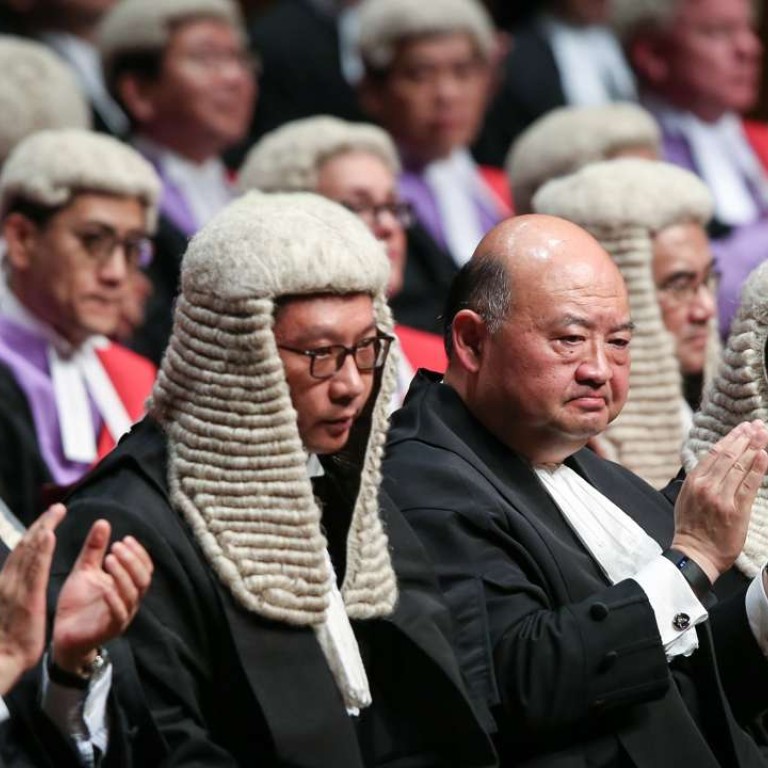
Hong Kong legal heavyweights warn against Beijing interpretations of Basic Law
Justice Secretary Rimsky Yuen says National People’s Congress Standing Committee should avoid ruling in matters that could be handled by city’s own court system
In his last address at the legal year opening ceremony as secretary for justice under the current administration, Rimsky Yuen Kwok-keung weighed in on the need for the National People’s Congress Standing Committee (NPCSC) to interpret the Basic Law in November after localist lawmakers took their oaths to insult China.
“I am confident that the rule of law in Hong Kong does and will remain well and alive after the interpretation,” Yuen said.
“For future purposes, may I also venture to suggest that matters that can be properly handled within Hong Kong’s legal or judicial system should be left to be dealt with at the Hong Kong level as much as possible.”
Such an approach, he said, “is certainly not a disrespect” to the NPCSC’s jurisdiction.
“Instead, it is the best way to demonstrate that the ‘one country, two systems’ policy does work robustly and successfully, and that the institutions devised under the Basic Law, including the judicial system, possess the quality and competence to meet such challenges as they arise,” he said.

Echoing the justice minister, Bar Association chairwoman Winnie Tam Wan-chi said where there was no ambiguity for Hong Kong courts to seek clarifications of the Basic Law from the NPCSC, “the court is best left to adjudicate the case independently, exercising its own power of interpretation”.
She added while one could “empathise with the political need perceived by the central government” to exclude Legislative Council separatists that disavow the Basic Law, the city’s rule of law and independence of the judiciary should not give way to political expedience.
Tam also commented on the Mong Kok riot that rocked the city in February by drawing a parallel with the racially inspired protest in Charlotte in the US state of North Carolina last year, saying that violent acts could fly in the face of the social justice to be sought.
Meanwhile, she said the two localist lawmakers-elect disqualified recently by the local courts had defeated their backers’ support by adopting offensive antics during their swearing-in.
Ma did not venture into discussions about the interpretation, due to the pending appeals. In his speech, he insisted that the law be applied equally to all defendants regardless of background.
“In highly charged or high-profile cases, all parties are treated in exactly the same way by the courts as in any other type of case. There is no added value or distinctions,” he said.
Ma also stressed that the government had the responsibility to uphold the rule of law.
“Though the role of the judiciary [is crucial], it is not the only relevant institution which has a stake in its advancement,” Ma said. “The government also plays an important role in upholding the rule of law, as do the Bar [Association] and Law Society.”
“Our judges … are answerable to the community in which they serve,” Ma said, “and I can assure everyone in the community that each of them will continue to discharge without compromise their constitutional duty and responsibilities.”
On the issue of a shortage of judges, he admitted it was difficult to hire quality lawyers.
“It becomes extremely important that the quality of the judiciary remains of the highest possible standard,” he said. “I would rather there be a shortage of judges rather than to compromise on quality.”


